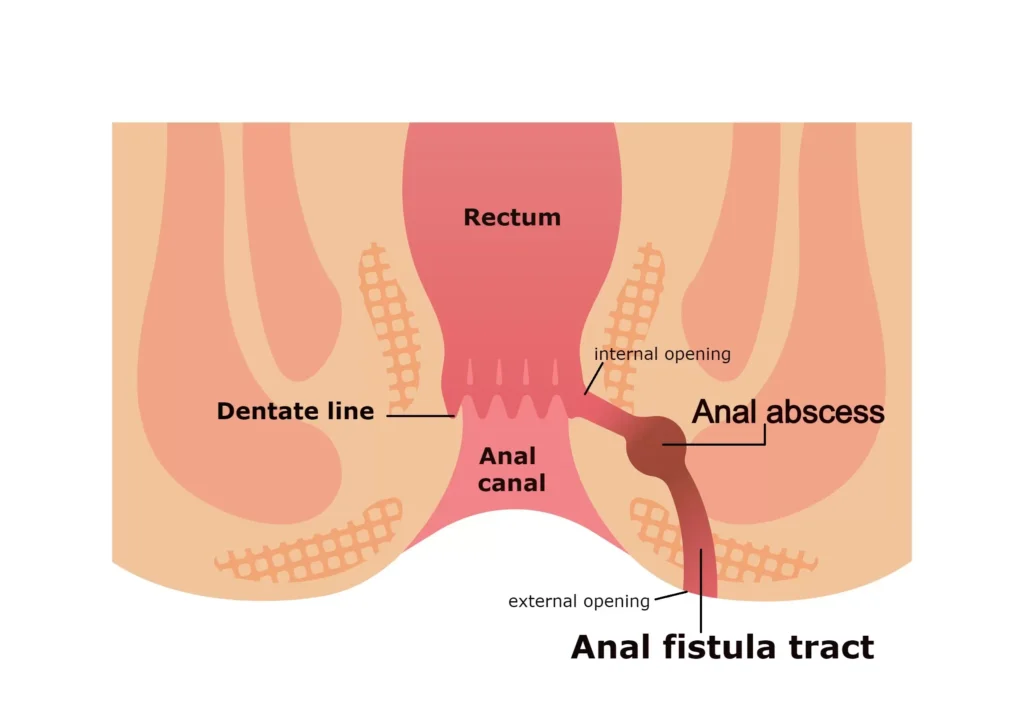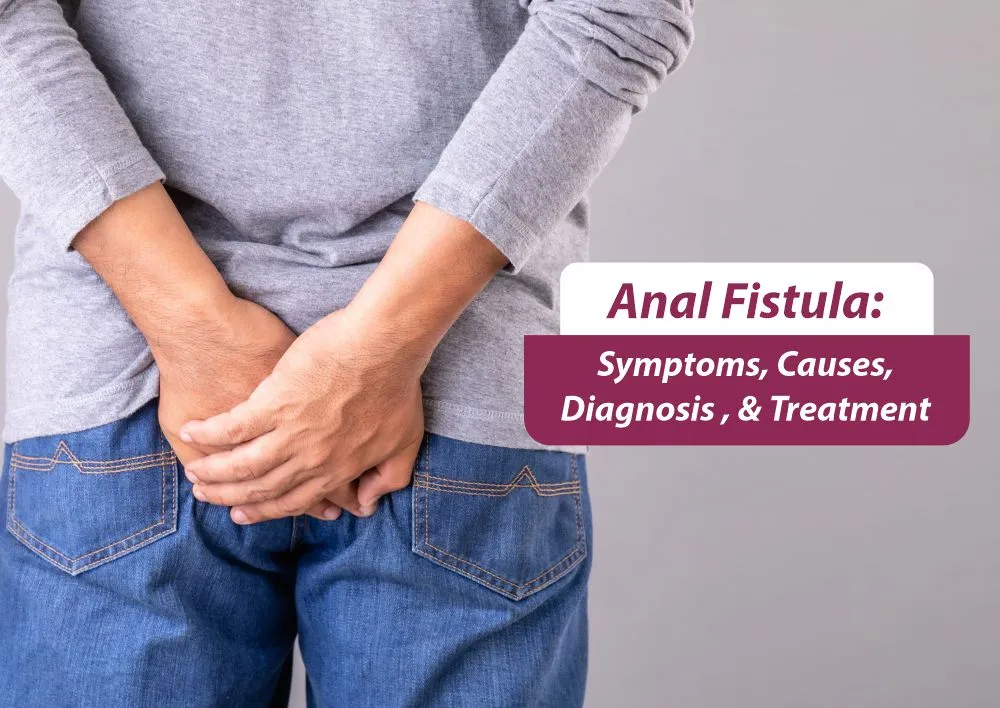Anal-Fistula
An anal fistula is an abnormal connection between the anus and surrounding skin, causing discomfort.
Symptoms of Anal-Fistula
Symptoms include pain, swelling, and discharge near the anus, often accompanied by recurrent abscesses or infections.
List of Symptoms:

Causes and Risk Factors of Anal-Fistula
Anal fistulas are typically caused by an infection in an anal gland that leads to an abscess. Risk factors include Crohn’s disease, chronic constipation, previous anal surgery, and a history of anal abscesses. They are more common in men.

Diagnosis of Anal-Fistula
Diagnosis involves a physical examination, digital rectal exam, and imaging tests like an MRI or ultrasound to map the fistula’s tract.
FAQs about Anal-Fistula
Frequently Asked Questions
FAQs explain the causes, symptoms, treatment options, and post-surgery care for patients with anal fistulas.

